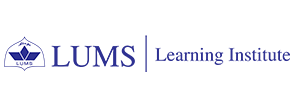Collecting Feedback from Students on Learning & Teaching
Students have valuable insights into their own learning experiences. While they may not be experts on teaching or subject matter, if asked good questions all students can be capable of reporting back honest feedback about what they learn, don’t learn, and ideas for how you could engage them more in your class. These resources are designed to encourage you to think about the different ways in which you can collect regular feedback to improve student learning in your classroom.
1. Collecting Feedback on Teaching
Collecting feedback about teaching is an important component of effective instruction because it gives you an idea of what you are doing well or areas for improvement to help students to learn. It is a good idea to take student feedback regularly, as a process of ongoing development for your teaching and your courses.
Below is a list of sample questions that you can adapt in any class:
a) The part(s) of the [class/lesson/activity] that were most valuable part(s) to me was (were):
b) The part(s) of the [class/lesson/activity] that were least valuable to me was (were):
c) What was the highlight of today’s [class/lesson/activity] for you?
d) What suggestion(s) would you offer to help enhance this [class/lesson/activity]?
e) During which part(s) of the [class/lesson/activity] did you feel the most engaged?
f) During which part(s) of the [class/lesson/activity] did you feel the least engaged?
g) What suggestions can you offer for things I (your instructor) could have done to help you to feel more engaged?
h) What could the I (your instructor) have done to increase the quantity and quality of participation in the class?
i) I would like to suggest the following changes to the design, content and/ or structure of the class (feel free to comment on each of these).
j) Do you feel as if you are leaving the class having achieved the learning outcome that the instructor expected? [insert the learning outcome]
Formats for collecting feedback using these questions:
- Doing quick surveys (3-4 questions maximum) and anonymous polls at the end of a lesson/term, in person or via email
- Google forms
- Communication via WhatsApp and email groups
- Asking questions during and towards the end of the lesson
- Collecting student questions and suggestions, compiling them and building on their input
2. Collecting Feedback on Student Learning
Collecting feedback from students on their learning as they progress through your course is a helpful way of getting to know how, when, and what learning is happening (or not) in your class.
Below is a list of sample questions that you can adapt in any class:
a) What was the most surprising and/or unexpected idea expressed in today’s discussion? (Interest)
b) For you, what interesting questions remain unanswered about today’s topic? (Interest)
c) During today’s class, what idea(s) struck you as things you could or should put into practice? (Relevance)
d) What idea expressed in today’s class strongly affected or influenced your personal opinions, viewpoints, or values? (Attitudes)
e) What do you think was the most important point or central concept communicated during today’s presentation? (Analysis)
f) What relationship did you see between today’s topic and other topics previously covered in this course or in another course? (conceptual connections)
g) If you had to tell a friend unfamiliar with this course what you are learning, what would you say?
Formats for collecting feedback using these questions:
- One-minute paper (asking students to reflect about the lesson through a free write activity)
- Google forms in the last 5 mins of the class
- Incorporating the above questions in end of term instructor evaluation
- Having an open Q&A at the end of the class
- Focus Group Discussion (supported by LLI or Student Partner)








